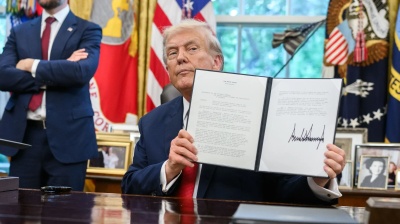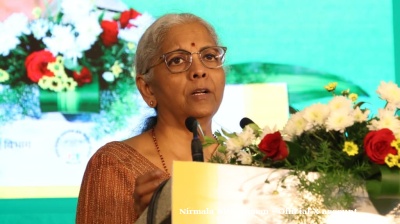Consultancy Kroll’s investigation into $1bn banking frauds in Moldova has registered progress and has yielded enough information for the fund recovery phase to begin, Moldova’s central bank announced on April 13.
Chisinau has engaged Kroll to investigate the theft, which resulted in $1bn being siphoned off from three local banks. Following the fraud in the banking sector, Banca de Economii, Banca Sociala and Unibank collapsed at the end of 2014. Former Prime Minister Vlad Filat was sentenced to nine years in prison for his involvement in the fraud.
Most of the money siphoned off from the three banks is being repaid from the public purse; the government has issued 25-year bonds to raise funds to reimburse the central bank for liquidity injected into the three banks. Resolving the situation in the banking sector was a condition set by the International Monetary Fund (IMF) for reaching a new arrangement with Moldova. Recovering even some of the money siphoned off would be a political coup for the highly unpopular government.
However, despite the progress made in the investigation, the ruling coalition has been criticised for lack of progress in investigating the massive fraud. In July last year, the opposition parties filed a no-confidence motion against the government after the parliamentary majority rejected the opposition’s attempts to create a committee aimed at speeding up investigations into the frauds in the banking system. The authors of the motion highlighted the coalition’s very weak support among voters and its alleged connection with those involved in the banking fraud.
The BNM now says it has received the fourth formal progress briefing from Kroll’s ongoing examination of the fraud. The initial phases were focused on identifying the mechanism by which it was carried out. Then the investigation followed the fraudulent loans granted through complex money laundering mechanisms in order to find the final destination of the money and the beneficiaries of the fraud. The final objective of the investigation is to identify the assets purchased with the stolen money and recover them.
It is estimated that the recovery phase will last between 18 months and two years due to the multi-jurisdictional nature of the proposed legal action and the complexity of the processes involved.
In 2016, Moldova's acting head prosecutor Eduard Harunjen announced that the US Federal Bureau of Investigations (FBI) had initiated its own investigation into the stolen $1bn.
So far, the Kroll investigation has clearly proven the involvement in the fraud of a large number of companies from Moldova which acted in concert and are connected to local businessman and politician Ilan Shor. “At least 75 companies were part of this coordinated group,” BNM said in a statement. Shor has denied involvement in the banking fraud and has testified against Filat.
According to the Kroll report quoted by the Moldovan central bank, between 2012 and 2014 significant volumes of loans were granted to this group of companies by the three banks. The funds were predominantly transferred to accounts opened in two banks from Latvia, before being laundered through a network of around 100 corporate bank accounts from Lithuania. Around $600mn were dissipated into bank accounts in many jurisdictions.
“The tracking of funds is an ongoing process and its complexity increases due to the different levels and ways the fraudulent loans were subject to during the money laundering mechanism,” the BNM said.
The amounts detected so far have been traced to accounts in different jurisdictions, mostly in other Moldovan banks ($185mn), in Cyprus ($63mn), China and Hong Kong ($61mn) and Switzerland ($23mn). Nearly $200mn was transferred to Latvian banks accounts and then was subject to a complex money laundering mechanism.
The investigation has also revealed the connections between individual beneficiaries of the fraud and companies which benefited and facilitated the fraud. Around 40 individuals were identified who have either benefitted from the fraud or facilitated it. Most of the identified individuals have received hundreds of thousands of US dollars. The aim of the money transfers has not been decided yet. The names of the individuals involved have not been revealed.
The investigation and analysis of the fraud will be continued in order to support the ongoing legal procedures and in order to bring more clarity over the beneficiaries.
News

Trump authorises CIA covert operations in Venezuela to topple Maduro
The White House has acknowledged granting the Central Intelligence Agency sweeping powers to conduct covert operations aimed at unseating President Nicolás Maduro, the NYT reported.

India’s finance minister to miss upcoming IMF and World Bank meetings
India’s Finance Minister Nirmala Sitharaman will not attend this week’s annual meetings of the International Monetary Fund and World Bank in Washington, as trade negotiations between New Delhi and Washington remain unresolved.

Young Ukrainians asylum seekers fleeing the war for Germany surges
The number of young Ukrainian fleeing the war and seeking asylum in Germany has surged, following Ukraine’s decision to partially lift its travel ban for men aged 18 to 22, according to figures from the German Interior Ministry.

US may double support for Argentina to $40bn conditional on policy reforms
Washington buys Argentine pesos and mulls creating a new private sector-led $20bn debt facility, which would bring total support to $40bn with the existing swap line, Treasury Secretary Bessent said.




